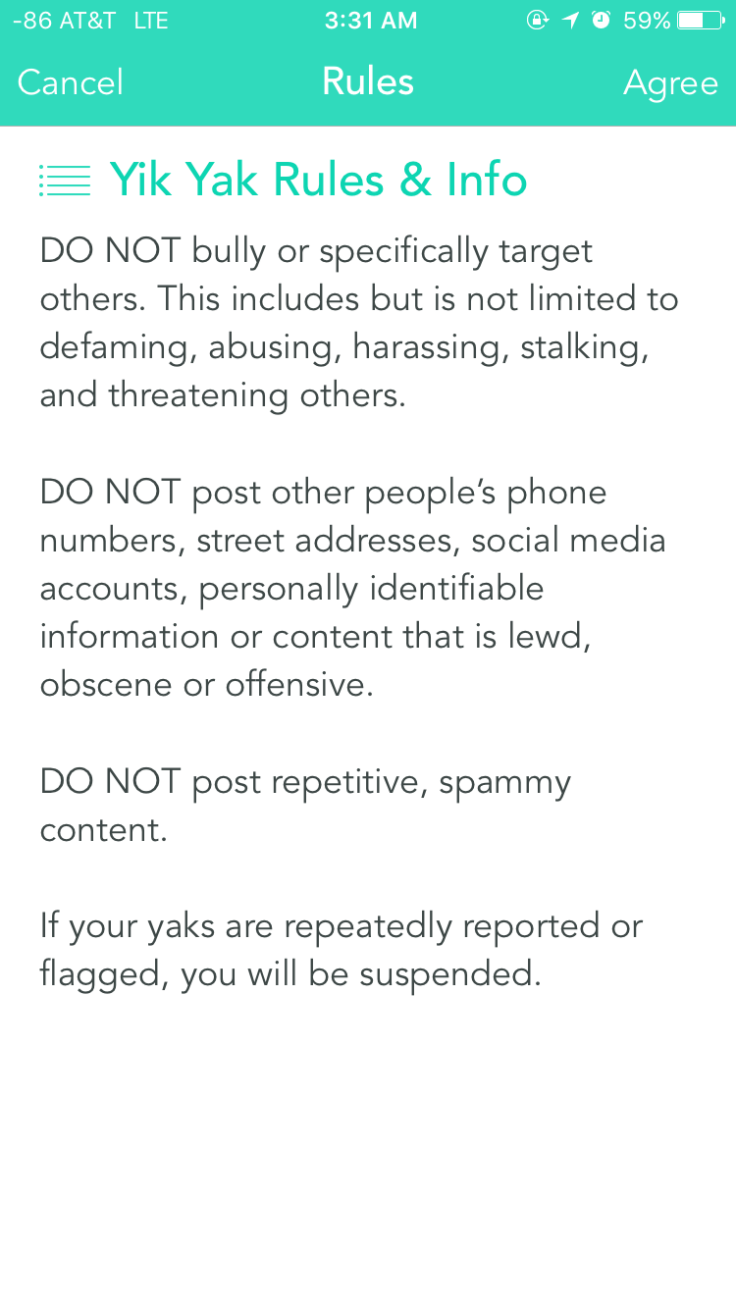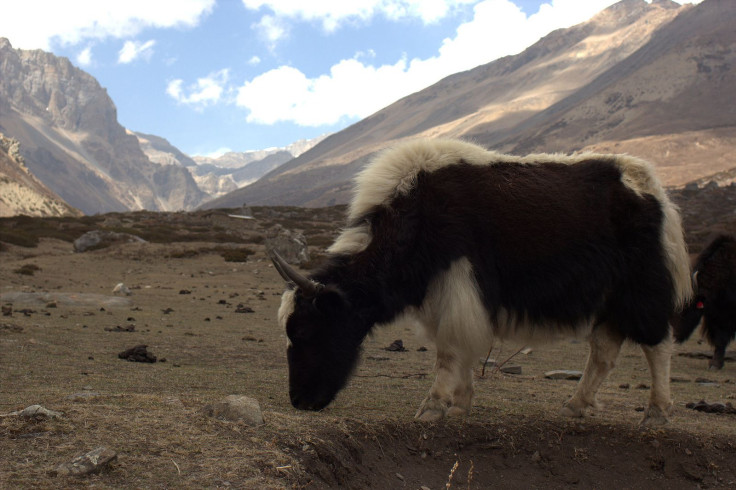While Tyler Droll and Brooks Buffington, the founders of Yik Yak, didn’t reveal the inspiration behind their yak-based marketing scheme, they did touch on a couple issues the anonymity-driven, localized social media network faces during a SXSW panel.
Yik Yak is a mobile-based, community message board that uses self-policing to regulate anonymous speech. Only thing is, what draws users to Yik Yak and keeps them there is also causing what Vox calls “Colleges’ Yik Yak problem.”
While police can subpoena the identity of users posting physical threats — like one University of Missouri student who yak-ed, “I'm going to stand my ground tomorrow and shoot every black person I see" — users who post non-threatening, derogatory remarks are not held accountable for their speech.
And while those yaks are easy to post, even if they are deleted quickly, the same anonymity making Yik Yak special means a single post can speak for the entirety of a large community as long it’s live. This matters to the community members those yaks target.
“It really is a tough problem to deal with. On every social media there’s the great and then the not-so-great side of things,” said Droll. “A part of it is that communities don’t always know they have this power in their hands to take care of these things. A part of that may be on us, but a part of that may be on the community too, of not knowing they can take of this quickly, of standing by idly and letting that happen.”

Yik Yak uses a combination of word filters, what Droll calls a “very, very robust” reporting structure, community downvotes (Once a yak has -5 votes it’s automatically deleted), community managers, and individual profile blocking by users to deal with the issue. The company has also introduced optional handles recently.
During the panel, the co-founders said that Yik Yak won’t be getting monetized in the near future. Instead, the social media network will be focusing its energy on growing its communities, with its current userbase predominantly made up of college students. The co-founders hope to use group activities, such as watching sports or political events, as a way to do this.
“Whenever there’s a debate going on or even a state of the union address, there’s a massive spike in the amount of conversation about that, and it’s very interesting to do some analysis on sentiment, [if] people [are] approving of that candidate, [or] disapproving, [or] neutral. [We] can see who gets the most mentions,” Buffington said. “And since we’re location based, we can do really cool things and slice it by location, see which states feel this way, [or] that way, [or] which candidates gets more mentions in that state vs. that state.”
At the moment Yik Yak doesn’t get rid of its data, which they have a “non-exclusive, perpetual, irrevocable, royalty-free, fully paid-up, [and] worldwide license” to do a variety of things with, although yaks do disappear from a community’s public feed after a relatively short period of time.
Post and replies are stored indefinitely by Yik Yak in backend profiles organized by the id assigned when a user first logs in. Yik Yak does make certain users verify and connect their phone number “to post content, share a yak or if [Yik Yak] suspects improper activity on [an] account.”
Students at @RutgersU rally on Yik Yak to help a fellow student find their missing cat. https://t.co/LIlV45z9Tw pic.twitter.com/5R6epPfxbw
— Yik Yak (@YikYakApp) March 10, 2016

















